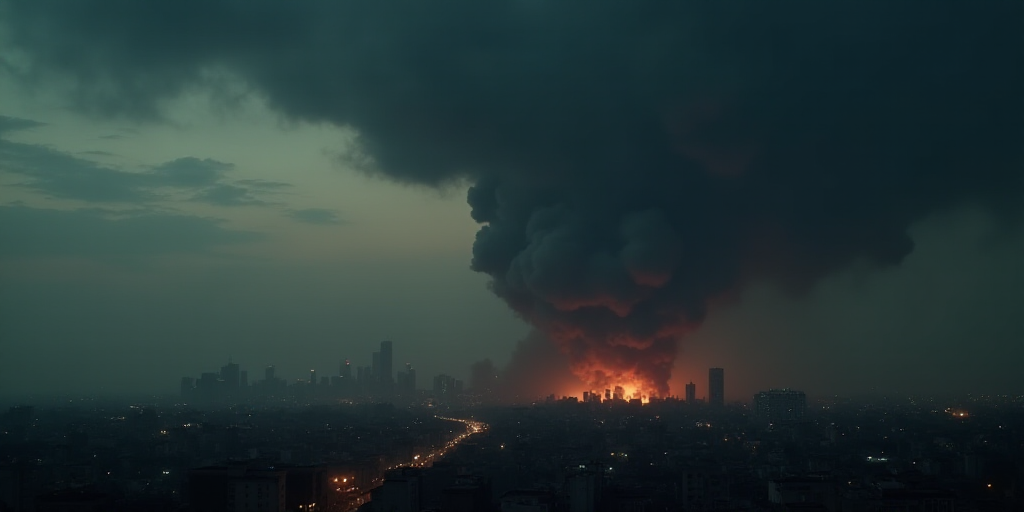Background on Key Figures and Context
Israel, a country known for its controversial yet unconfirmed nuclear arsenal, has reportedly launched a series of airstrikes targeting hundreds of military and nuclear installations in Iran. The self-proclaimed archenemy of Israel, Iran, responded by launching missiles and drones towards Israel.
Who is Gideon Saar?
Gideon Saar, the Israeli Foreign Minister, stated that these attacks have significantly delayed Iran’s nuclear weapon development by “at least two or three years.” Saar made these comments to the German newspaper Bild, emphasizing Israel’s commitment to continuing its offensive until the nuclear threat is eliminated.
Why is Iran Relevant?
Iran has been under international scrutiny regarding its nuclear program, which it insists is for peaceful purposes. However, Israel and other countries suspect Iran of pursuing nuclear weapons. The recent airstrikes by Israel aim to disrupt Iran’s nuclear ambitions, a claim that Iran denies.
Key Events and Developments
- Israeli Airstrikes: Since June 13, Israel has conducted extensive airstrikes against Iranian military and nuclear facilities, targeting storage and launch infrastructures.
- Iranian Retaliation: Iran responded with missile and drone attacks on Israel, resulting in casualties and material damage on both sides.
- Casualty Reports: According to Iranian officials, 224 people have been killed in the attacks, including military commanders, nuclear scientists, and civilians. However, opposition groups in Iran claim a higher death toll of 657 with 2,000 injuries.
- European Diplomatic Efforts: European foreign ministers met in Genebra to seek a diplomatic solution with Iran’s Foreign Minister, Abbas Araqchi, who stated that Iran is open to renewed diplomacy once Israel’s aggression ceases.
- US Considerations for Military Intervention: US President Donald Trump has considered military involvement, giving Iran a two-week ultimatum to avoid potential US airstrikes.
Key Questions and Answers
- Q: What has Israel claimed about Iran’s nuclear program?
- A: Israel claims that its airstrikes have delayed Iran’s nuclear weapon development by “two or three years,” as stated by Foreign Minister Gideon Saar.
- Q: How has Iran responded to the Israeli airstrikes?
- A: Iran has retaliated with missile and drone attacks against Israel, resulting in casualties and material damage on both sides.
- Q: What are the reported casualty numbers from both sides?
- A: Iranian officials report 224 deaths, while opposition groups claim a higher toll of 657 fatalities and 2,000 injuries.
- Q: What are the European diplomatic efforts regarding this conflict?
- A: European foreign ministers have attempted to engage Iran in diplomacy, with Iran’s Foreign Minister Abbas Araqchi stating their willingness to renew talks once Israel’s aggression ends.
- Q: What is the US position on potential military intervention?
- A: US President Donald Trump has considered military involvement, giving Iran a two-week ultimatum to avoid potential US airstrikes.
Ongoing Tensions and Future Implications
Despite diplomatic efforts, cross-border attacks continue. Israel’s military chief, Lt. Gen. Eyal Zamirdijo, warned of a prolonged campaign, stating that Israel must prepare for an extended conflict. Meanwhile, Iran’s Islamic Revolutionary Guard Corps claimed attacks on military centers, defense industries, command and control centers, and Israeli military bases.
The human cost of this conflict is evident, with hospitals in Haifa, Israel, reporting 19 injuries from Iranian missiles. Material damage has also been reported in Beerseva, southern Israel. In Tehran, thousands took to the streets in support of their leaders and against Israel and the United States, burning their flags.
Amidst these developments, businesses in Tehran remain largely shuttered, with many merchants expressing concern over the economic impact of the ongoing conflict.






